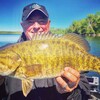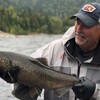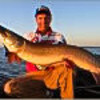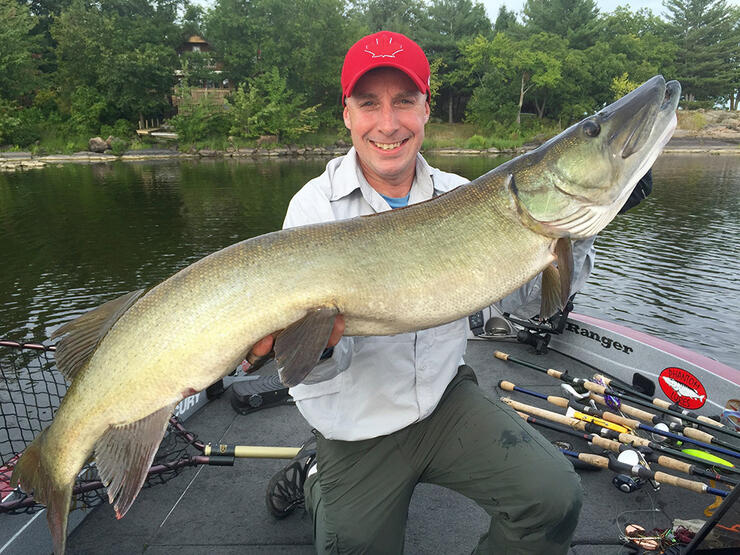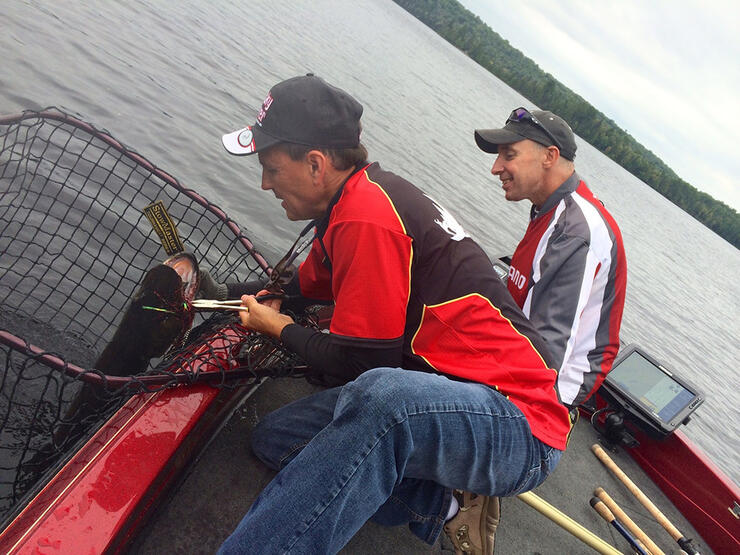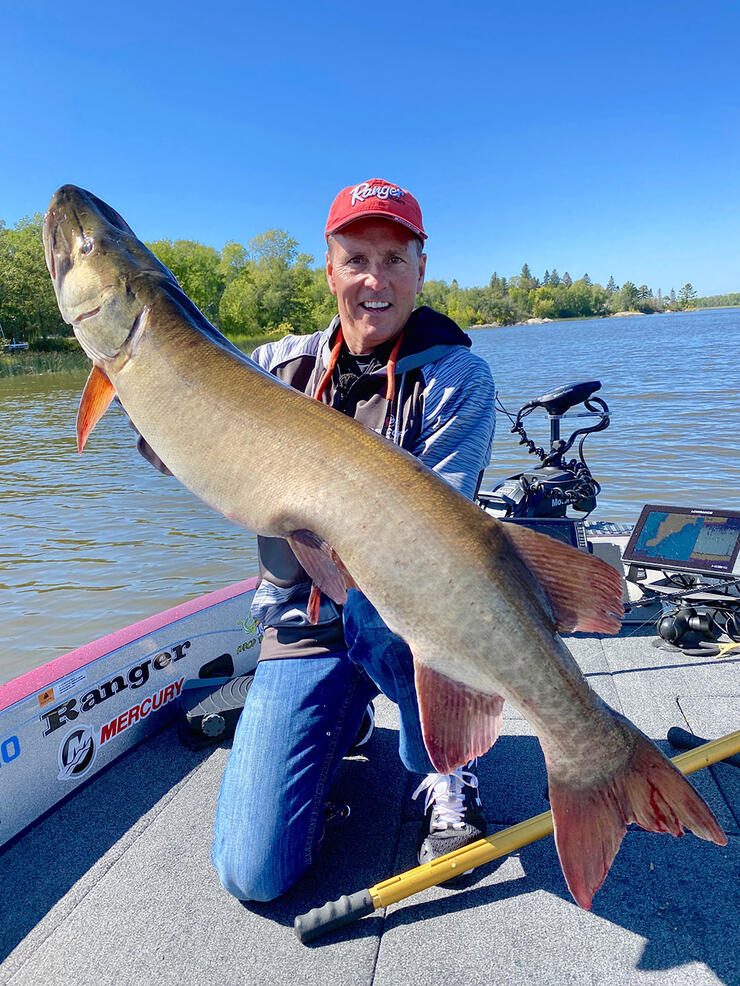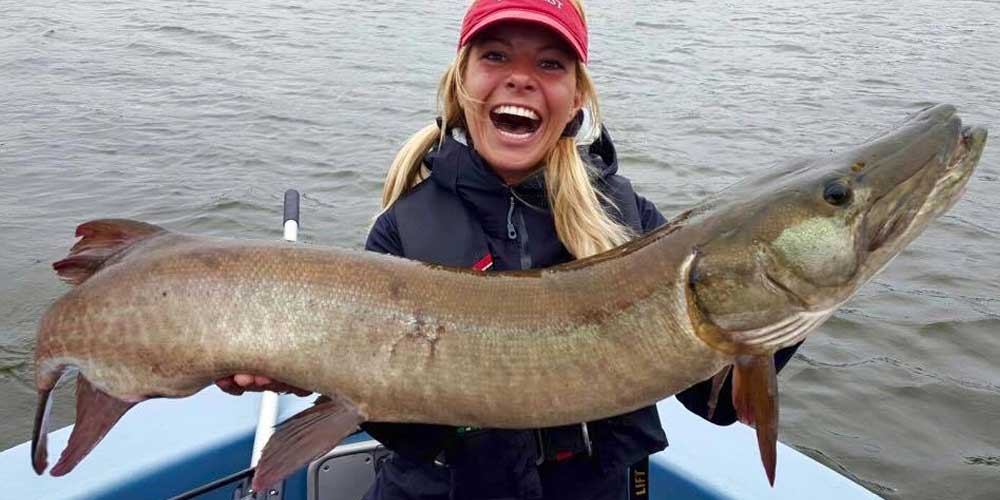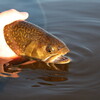
Secret Tips for Landing Ontario Muskies
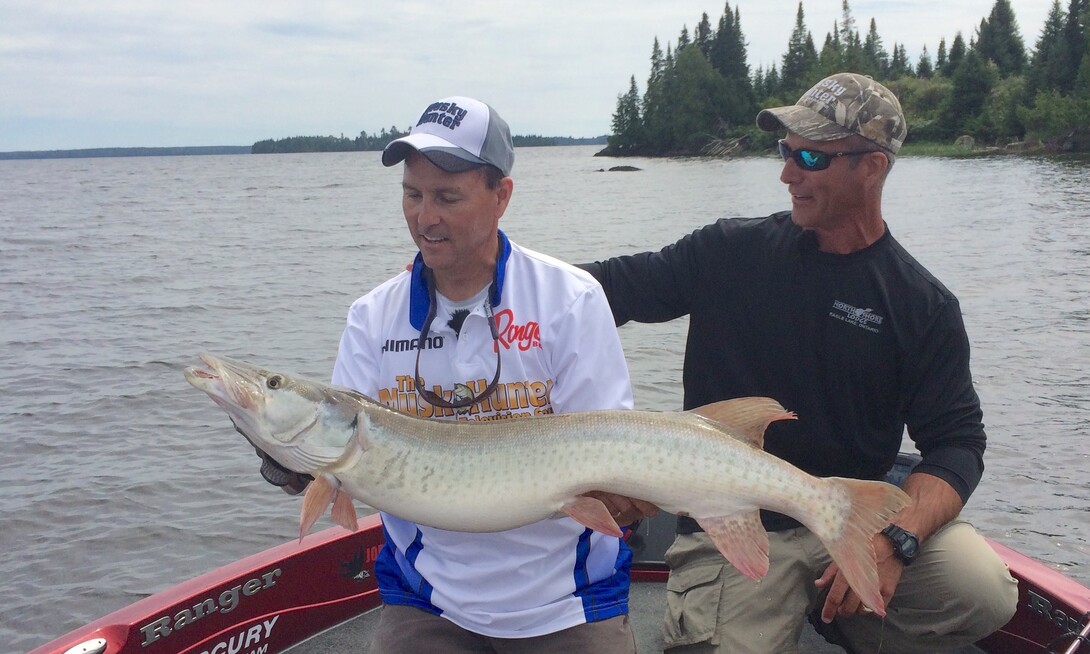
Your favourite topwater lure plops across the surface cutting through the light chop. Suddenly, a wake appears and it begins to become more noticeable as it closes on the lure. You watch closely like a dog on point in anticipation. Your heart rate has gone aerobic at this point as you keep the lure moving. One quick rotation of your reel handle and the musky coils its tail explodes on the lure, and the battle is on. It is whitewater fury as the musky thrashes on the surface. These are the dreams and nightmares of many die-hard musky hunters.
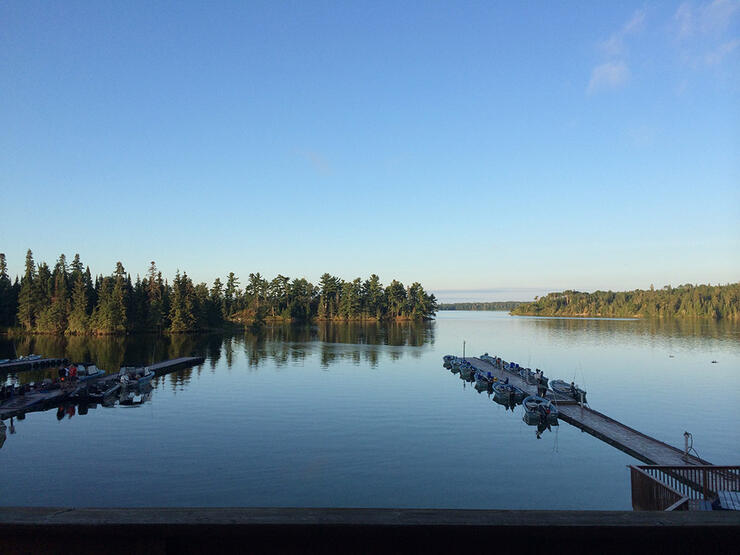
Canadian muskies are the fish of legends. It’s the ultimate fishing challenge for any angler venturing to Canada. However, some are discouraged by wanting to fear musky fishing, primarily due to the stigma of the musky being the fish of 10,000 casts. If you are fishing in Ontario this just isn’t true. Sure, they aren’t easy to catch and require some effort, but here’s a simple formula to change all that this season.
1. FISH SHALLOW
Having pursued muskies in waters all across Ontario, one of the things that make musky fishing in Ontario special is that the fish are often shallow. If the water colour is stained or dirty, you can expect most muskies action to occur in ten feet of water or shallower. In fact, sometimes I have caught muskies from water so shallow; you would think their backs should be out of the water! Certainly, if the water is clearer the fish may be deeper and more related to edges, but in most Ontario musky waters, think shallow.
I focus on fishing islands and shorelines and casting very close to the bank. My lures are landing in extremely shallow water. While fishing shallow water in Ontario my primary choice of lures are bucktails and topwater, which are designed to fish over and through the shallow cover. When fishing weed beds, I position my boat away from the cover, but make long casts over the weed bed, and try to reach the shore. Sometimes the muskies are located between the shoreline and where the weeds begin. Other times, they are in the thick weeds. Of course, there are times when the muskies are on the outside edge.
Besides fishing weeds, focus on shallow rock reefs and rocky points. Again, don’t just focus on the edges, but make sure you cast your topwater or bucktail right on top of the reef, or across the point. Rather, than sitting in deep water, it’s more common for the active musky to be sitting right on top.
Ontario musky fishing is very visual and much like bass fishing. You are casting to the shoreline and visible targets that might be submerged boulders, thick weed patches or pockets between the weed cover. Even a submerged log on a shoreline or in a bay may hold shallow water musky. If a spot or target looks “fishy” don’t pass it up. Keep your lure selection simple by using bucktails and topwater and you will make contact with muskies.
2. FIGHT THEM RIGHT
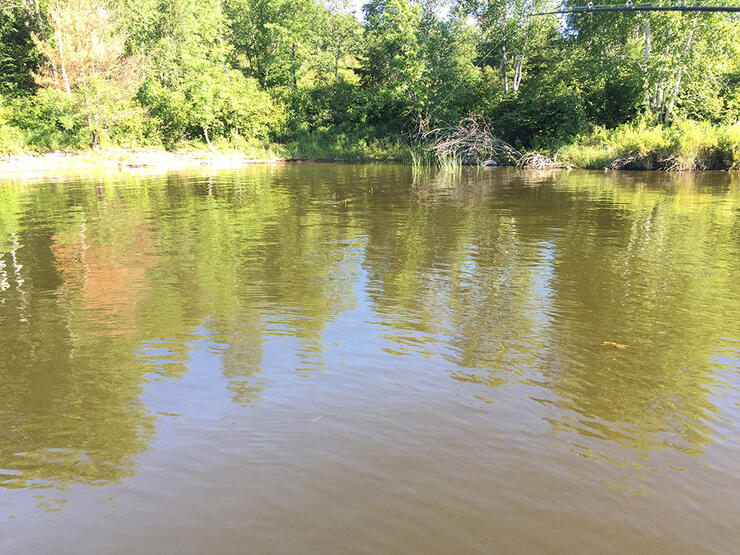
So, you have hooked a musky. It might be your first, or it could be your largest….don’t panic. Before we go any further, let’s rewind a second, and hopefully, before you target muskies you have the right equipment. I use a Shimano SKIXX musky rod in heavy to extra heavy action, approximately nine feet in length. I team it up with a Shimano Tranx 400 or 500 reel and spool up with an 80-pound PowerPro SuperSlick V2 braid. Of course, I complete the set-up with a 130-pound Stealth fluorocarbon leader. This equipment allows you to relatively easily cast large musky lures all day long. Plus, you can get a great hookset and the SKIXX rod will help you land more muskies. Oh, and remember to set your drag tight.
Now, back to the musky, you have just hooked! After the hookset, keep reeling and try to maintain a bend in the rod. Let the equipment fight the fish. When the musky dives deep, keep your rod tip up; and when the musky starts thrashing or jumping keep your rod tip down and reel fast. You are not trying to tire the musky out and fight the fish to exhaustion. In fact, the heavy equipment is probably a little overkill for most muskies, but it allows you to land them faster and put less stress on the fish.
In most cases, the total time to land the musky will be less than 2 minutes, and if they hit at boat side or on figure 8, the battle could be over in a matter of seconds before you net the musky. Although the battle may be short, the power and acrobatic twisting, turning and jumping off a giant fish, is certainly an adrenaline-filled experience to get your blood pumping.
3. RELEASE THEM RIGHT
Congratulations. You have now landed your trophy musky. It’s important to both you and the musky’s future that you handle this fish correctly. If you watch The Musky Hunter Television Show you’ll see we use a large Stowmaster Net to land the musky and actually, the large, deep bag on the net allows us to leave the fish in the water, while the yoke of the net sits along the side of the boat. The large net serves as an “in-water” live pen. As long as the musky’s head is in the water, the fish is fine.
Take a couple of seconds to take a few deep breaths and gain your and your partner’s composure. You don’t want to rush and stick your hands in the musky’s mouth with a lure full of razor-sharp hooks. Look into the net and analyze where the hook is in the musky’s mouth. You’ll need 10” pliers to be able to reach into the net to remove the hook. You should also have some type of release glove to handle the musky as well. Most importantly, you need hook cutters. It is quite often easier to simply cut the hook from the fish than try to twist it out. I usually first try with the pliers and if it doesn’t come free, I cut the hooks. Hooks are relatively cheap and can be easily replaced on your lure.
Ideally, you are trying to minimize the time from when the musky is hooked to when it swims away. You accomplish that by having the correct rod and reel to land the musky, the proper net to quickly land the musky, and most importantly the proper tools to release the musky.
Now, I am certain you want a photograph of your catch. Before you pull the musky from the net, make sure your partner knows how to work your camera, which most likely is on your phone. When he is ready pick up the fish from the net and take a few photographs. As a general rule, take a breath as you pull the fish from the net and hold it while you are taking photos, when you need another breath, that musky needs to go back in the water.
When the musky is in the water along the side of the boat, hold it upright by its tail. There is no need to move it back and forth. It will regain its strength. I typically give it a few seconds and tilt the fish on its side a little. You’ll be able to feel the musky coil and want to right itself. When that happens, give it a gentle push forward and let it swim away.
You have just caught a trophy Ontario musky and released it. With some muskies living over 25 years in Ontario, who knows how many times these fish get caught and released in their lifetime? One thing is for sure, by following this approach of fishing shallow, fighting the musky properly and safely releasing the fish, you have ensured that someone else will enjoy this same great experience.
For more on fishing muskies in Ontario, as well as great lodges to stay and catch muskies check out www.gofishinontario.com and feel free to watch musky episodes and more information at www.muskyhuntertv.com
Recommended Articles

Top 10 Streamers for Ontario Brook Trout
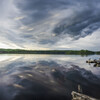
Lac Seul Outpost Adventure
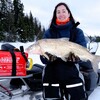
Best WhiteFish Tactics
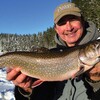
Ice Fishing Trout
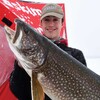
Weather or Not
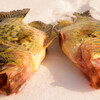
How to: Target Black Crappies (Part 2)
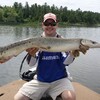
Long Nose Gar
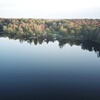
Ned Head Walleye of Algoma
The Best Of Times in Northern Ontario
Brennan Harbour Resort
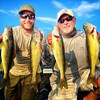
Walleye Sunsets
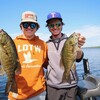
Top 5 Tips To Fish Smallmouth Bass in Ontario
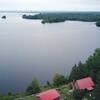
Tama Kwa Vacationland
Ontario's Trophy - Splake Prize
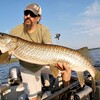
The Tigers of Sunset Country
Fishing and Foraging
Bronzebacks of the Whalesback
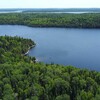
Loch Ness Fishing
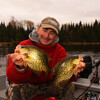
Double Trouble for Fall Crappies
